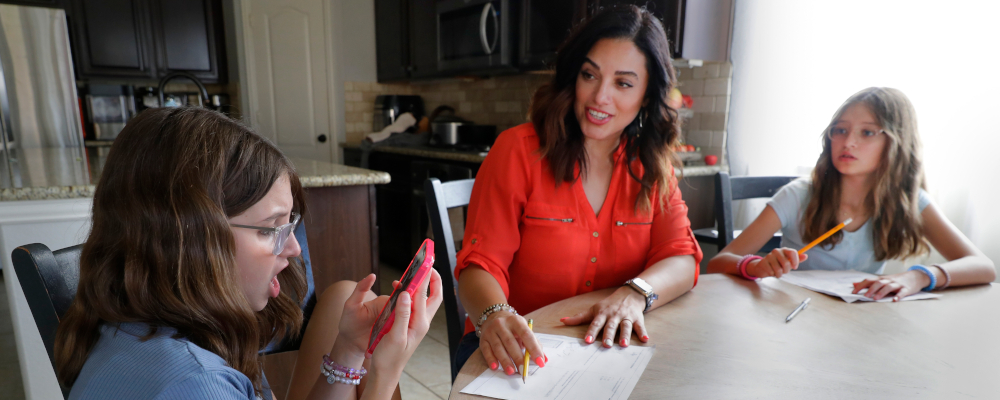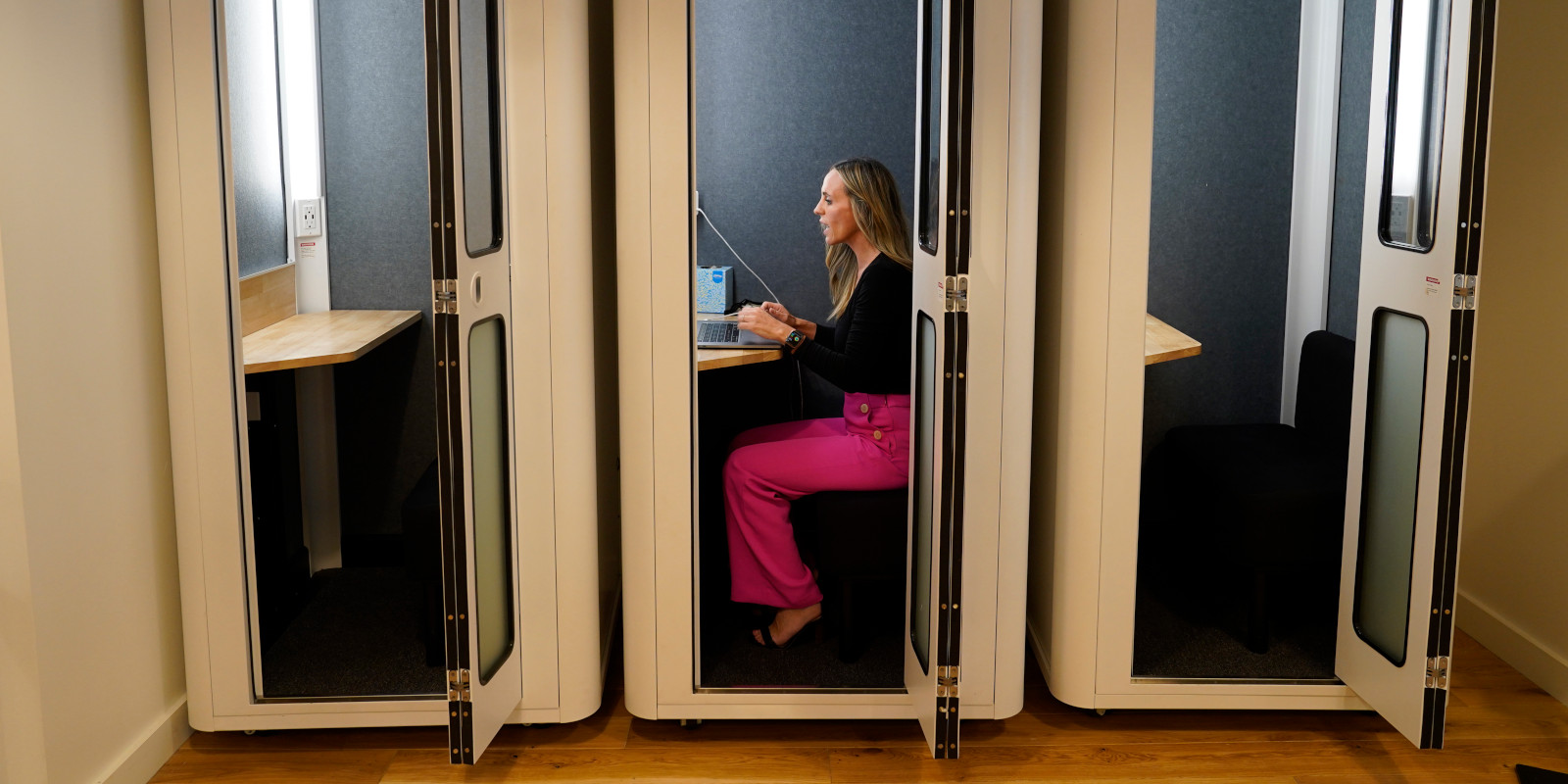The dire earnings impact from Canadian women having children is one of the major factors influencing their fertility decisions and Canada’s now lowest-ever fertility rate.
Canadian women are now experiencing on average a nearly 40 percent drop in earnings in the first five years after giving birth, which experts say is a leading factor in the record-low birthrate of 1.33 children per woman.
“It really boils down to what is the cost that mom is taking on being a parent? It’s not dads taking on that cost,” says Tammy Schirle, a professor of economics at Wilfrid Laurier University.
The female-male disparity in income loss is demonstrated in the two maps of Canada below, both using an identical colour scale.
This data demonstrates that Canadian women who have children can experience significant income loss over time.
This January, Statistics Canada reported that this country’s 2022 fertility rate fell to an average of 1.33 children per woman, representing a year-over-year decline of 7.4 percent, the greatest since the 7.6 percent decline in 1972, during the tail end of the baby boom.
Transitory economic trends such as inflation and recessions have had a low historical impact on national fertility rates. What really mattered, says Schirle, is the 1960s shift in social norms and new choices presented to women regarding family planning in the form of the birth control pill. Both came with women gaining control over their own fertility and economic prospects.
“I tend to focus on that choice: what are (women’s) opportunities and what are their constraints?" she describes.
The maps above define those constraints. It uses the “Child Atlas of Child Penalties,” a dataset published this March by University of Calgary economic professors Stefan Staubli and Jean-William Laliberté and PhD student Sencer Karademir.
According to their research, the national average change in earnings in the first five years of parenthood are decreasing for both women and men, but by stark degrees: a decrease of nearly 40 percent (39.1 percent) for women and just 0.5 percent for men.
Given that the average Canadian earns $300,000 over five years, women would thus earn $120,000 less in the first five years of parenthood (before taxes). Men would only earn $1,500 less.
New mothers' greatest earning declines and new fathers' greatest earning increases in the first five years of parenthood are seen most starkly in Western Canada. Southern Manitoba is experiencing the greatest average earnings decrease for new Canadian mothers, by nearly 60 percent. Sudbury has both Ontario’s greatest average earnings decline for mothers (-42 percent) and increase for fathers (+8.6 percent). Saskatchewan is home to Canada’s greatest average increase in earnings for new fathers (+11.5 percent).
Most cases of income loss, says Schirle, can be attributed to instances where social norms and childcare institutions aren’t strong enough to support women’s decision to work after having a child. Even mothers who immediately return to work are still compelled to decline competitive yet time-consuming positions to instead make time for childcare in a manner that men are not.
“If you have a job where you have to stick around until the boss leaves…it may have been higher paying, but you can’t take that job,” she says. The same is true for shift or weekend work Schirle adds.
Last year, Harvard professor Claudia Goldin won a Nobel economics prize for her work studying the trends above: that even if an American man and a woman are on an identical education and career trajectory, the introduction of children will permanently reduce the income of the woman significantly more than man.
The greatest long-run cost, Schirle says, is to women’s pensions and saving ambitions. A 2012 University of California study showed that an expensive housing market can delay women having their first child by three to four years.
“The main cost of children is really the forgone earnings,” corroborates Jean-William Laliberté, one of the academics behind the “Child Atlas of Child Penalties” study.
“It’s not what you pay out of pocket, but the money that you would have realised but now you don’t because you don’t have the ability to work as much as before,” he says, describing the “child penalty” of his study.

Mothers that perform the best when it comes to retaining their earnings can be found in Quebec. Laliberté points to Quebec’s childcare policies including its universal model introduced in 1997. These policies, he says, make it significantly easier for mothers to work in higher-paid positions. Particularly mandatory 3-5 p.m. after-school care in elementary schools.
The “Quebec Model” of childcare and family benefits inspired the federal Liberal government’s $10-a-day childcare program, says Laliberté, which was pitched following the COVID-19 pandemic to see mothers remain in work. The program however has faced major rollout issues.
However, while certain government policies may allow mothers to retain greater earnings, other studies suggest that these early childhood support programs actually have negative effects on kids, which persist into adolescence.
“The Long-Run Impacts of a Universal Child Care Program,” published by Michael Baker, Jonathan Gruber, and Kevin Milligan in a 2019 edition of the American Economic Journal concluded that Quebec’s policy contributed somewhat to a negative impact on children's non-cognitive skills.
Effects included anxiety, aggression, poor behaviour and attention, or later-in-life criminality. Although the causes of the program’s poor outcomes weren’t the subject of their study, Milligan says they could include the stress of having two parents entirely engaged in work and their reduced ability to coordinate doctor visits or other means of external care.
“The evidence is pretty strong that the Quebec childcare program had a really large impact on women being able to work. From that, you can draw a direct line to an impact on women’s role in the family, and also in their life path in having a stronger attachment to the labour force. That’s an important thing I would like to view as positive,” says Milligan.
“On the other hand, we and other authors have found some negative impacts on the non-cognitive outcomes [of children],” he adds. “I think there are ways to think about the design of the actual program itself to account for the fact that there might be risks of [poor behaviours].”
Recommended for You

‘A big gamble’: Can Canada’s new U.S. trade rep handle high-stakes negotiations with Trump?

First Nations don’t need saving—they need government to get out of the way

Why Canadian families are feeling fragile: 5 charts

Scandalous politicians could finally face serious consequences if this Supreme Court case is won, says democracy watchdog




